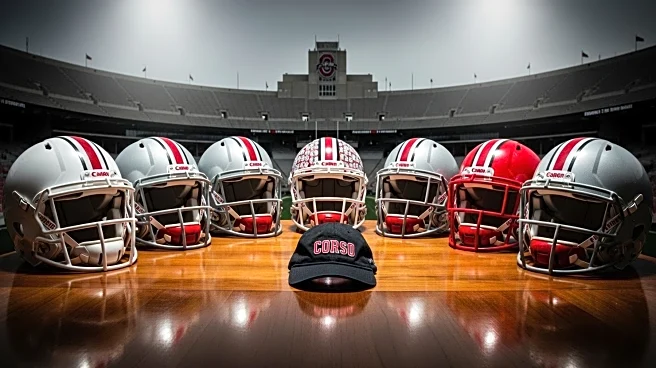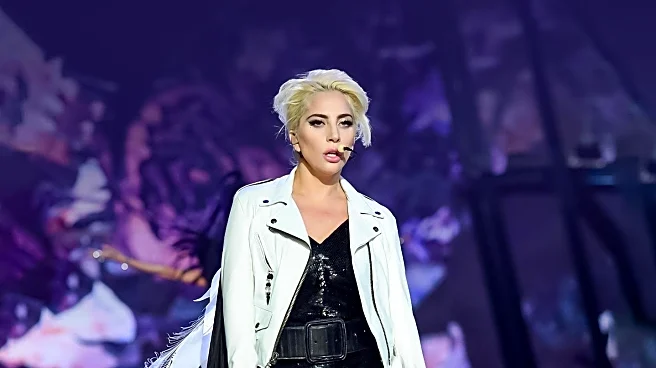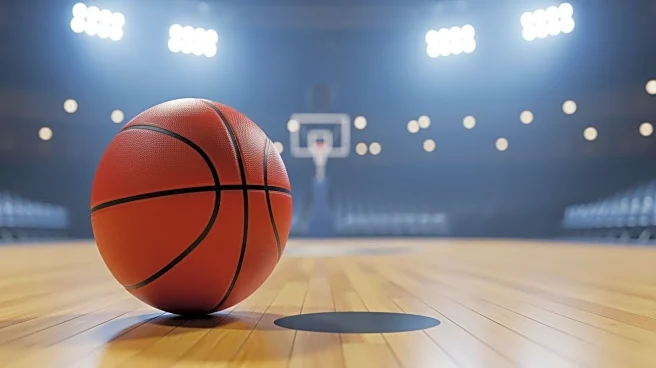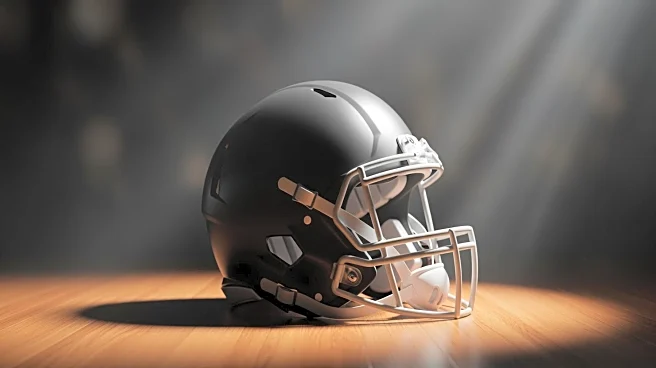What's Happening?
Lee Corso, a prominent figure in college football broadcasting, made his final appearance on ESPN's College GameDay at Ohio Stadium. Corso, who has been a staple of the show for 38 years, concluded his career with a headgear pick, choosing Ohio State to win against Texas. This choice mirrored his first headgear pick 29 years ago, creating a full-circle moment. Corso's retirement was announced earlier this year, and his final show was marked by tributes from fans and colleagues. The Ohio State marching band honored him by spelling out his name on the field, and Ohio State head coach Ryan Day presented him with a custom helmet. Corso's career in college football dates back to 1957, and he has made 430 headgear picks with a record of 286-144.
Why It's Important?
Lee Corso's retirement marks the end of an era for College GameDay and college football broadcasting. His unique style and catchphrases have become synonymous with the show, influencing how college football is presented to fans. Corso's departure may lead to changes in the show's format and dynamics, impacting its viewership and popularity. His contributions to college football have been significant, and his retirement is a moment of reflection on the evolution of sports broadcasting. The tributes from fans and colleagues highlight his impact on the sport and the community, underscoring the cultural significance of his career.
What's Next?
With Lee Corso's retirement, ESPN's College GameDay may undergo changes in its presentation and format. The network will need to fill the void left by Corso's departure, potentially introducing new personalities or segments to maintain viewer engagement. The show's future direction will be closely watched by fans and industry stakeholders, as it adapts to the absence of one of its most iconic figures. The transition period may also see increased focus on other hosts, such as Kirk Herbstreit, who has been a long-time partner of Corso.
Beyond the Headlines
Lee Corso's retirement raises questions about the future of sports broadcasting and the role of personality-driven content. His career exemplifies the impact of charismatic figures in media, and his departure may prompt discussions on how networks can cultivate new talent to maintain audience interest. Additionally, Corso's influence on college football culture highlights the intersection of sports and entertainment, and how media personalities can shape public perception and engagement with sports.










